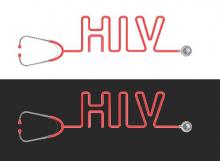An open-label pilot study has found adjunct treatment with the SSRI antidepressant sertraline is associated with accelerated clearance of Cryptococcus from the cerebrospinal fluid in HIV-infected individuals with cryptococcal meningitis.
The dose-finding study of 172 HIV-infected Ugandan adults with cryptococcal meningitis showed any dose of sertraline, in combination with standard amphotericin B and high-dose fluconazole therapy, was associated with an average clearance rate of –0.37 log10 colony-forming U/mL CSF per day, compared with –0.30 observed in a previous study in individuals taking standard therapy without sertraline.
According to a paper published online in Lancet Infectious Diseases, the incidence of paradoxical immune reconstitution inflammatory syndrome was 5%, compared with rates of 17%-30% observed in other studies.
The sertraline doses used in the study ranged from 100 mg/day to 400 mg/day but researchers did not observe a significant difference in serious adverse events between the lower and higher doses (Lancet Infect Dis. 2016 Mar 9. doi: 10.1016/S1473-3099[16]00074-8).
Sertraline has previously shown potent fungicidal activity against Cryptococcus in vitro and in mice, suggesting it could be a promising therapeutic option for cryptococcal meningitis, a disease that accounts for 15%-20% of AIDS-related deaths in Africa.
“The current standard therapy for cryptococcal meningitis is based on antifungal regimens that are a half-century old, are associated with a range of toxic effects, and are largely inaccessible in areas of the world where they are needed most,” wrote Dr. Joshua Rhein of the University of Minnesota, Minneapolis, and his coauthors. “For this reason, the discovery of a widely available, nontoxic, and affordable drug effective against Cryptococcus would represent a substantial advance in preventing deaths.”
The study was supported by the National Institutes of Health, Fogarty International Center, Grand Challenges Canada, and the Doris Duke Charitable Foundation. No conflicts of interest were declared.


